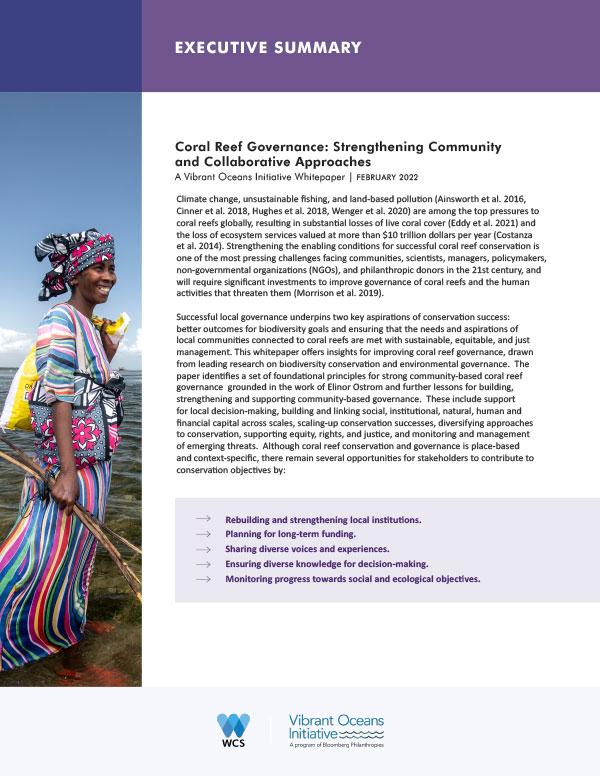Climate change, unsustainable fishing, and land-based pollution (Ainsworth et al. 2016, Cinner et al. 2018, Hughes et al. 2018, Wenger et al. 2020) are among the top pressures to coral reefs globally, resulting in substantial losses of live coral cover (Eddy et al. 2021) and the loss of ecosystem services valued at more than $10 trillion dollars per year (Costanza et al. 2014). Strengthening the enabling conditions for successful coral reef conservation is one of the most pressing challenges facing communities, scientists, managers, policymakers, non-governmental organizations (NGOs), and philanthropic donors in the 21st century, and will require significant investments to improve governance of coral reefs and the human activities that threaten them (Morrison et al. 2019).
Publications
Coral Reef Governance: Strengthening Community and Collaborative Approaches

Publication type
Publication year
2022
Download size
<5mb
Citation
Authors: Mark Andrachuk*1, Graham Epstein*2,17, Gildas Andriamalala3, Tamatoa Bambridge4, Natalie Ban5, Jessica Cheok6, Erica Cunningham7, Emily Darling8, Georgina Grace Gurney9, Emilie Litsinger10, Emma McIntosh11, Morena Mills12, Tiffany Morrison9, Sangeeta Mangubhai13, Jenny Oates3, Diana Pietri14, Cristina Ruano-Chamorro9, Rocky Sanchez Tirona15, Colette Wabnitz16, Jeff Young7 *coordinating authors
Share this:
Facebook
Twitter
LinkedIn
WhatsApp
Email
Related publications
Join a global movement
















